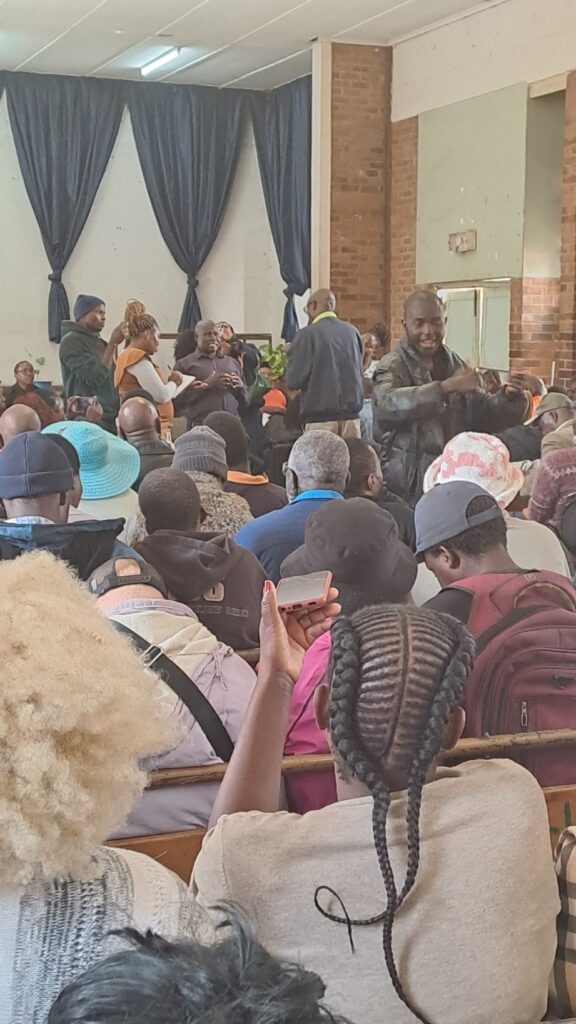Persons with Disabilities welcome PWD Bill, Call for Enforcement upon adoption as Act
Loraine Phiri

Persons with disabilities (PWDs) in Zimbabwe have applauded the government’s initiative with the Persons with Disabilities (PWD) Bill. However, they have urged for its effective implementation upon adoption as an act to ensure a tangible improvement in their lives.
During a public hearing held in Bulawayo’s Lobengula Hall, participants commended the government’s commitment to improving the lives of PWDs but stressed the need for action when the Bill becomes an Act.
“While we appreciate the PWD Bill, we hope it goes beyond being a well-written document,” said one participant. “When the Bill becomes an Act it must clearly outline the government’s responsibilities towards PWDs. Financial constraints should not be an excuse for inaction. We need concrete steps to improve our lives.”
Another participant highlighted the lack of disability policies in educational institutions.
“I have attended three tertiary institutions, and two had no disability policies,” they said. “The government should mandate these policies to ensure accessibility and inclusivity. The absence of sign language interpreters creates significant barriers for deaf students.
Deaf children should not be alone at school but deserve to learn alongside every other child. Sign language should be mandatory in schools to foster true inclusivity from a young age.
A representative from Noble Hands, Marvellous Tshuma emphasized the need for clear identification of all disabilities within the bill.
“People with albinism, for instance, deserve recognition and support for their specific challenges, such as vision problems that can disrupt education,” they explained. “The government’s assistance is crucial to prevent school dropouts.”
Accessibility and affordability of assistive devices were also raised as concerns. Additionally, participants advocated for free healthcare for PWDs and their children.
Sibongile Mbayiwa pointed out the bill’s silence on caregivers of children with Down syndrome.
“These children have potential, but their education often focuses solely on social skills, neglecting holistic development,” Mbayiwa said. “Financial support for caregivers is essential to ensure that they are well taken care of.”
The high cost of accessible transportation was another point of contention. Participants argued that “reasonable” accessibility is not enough. PWDs often face extra charges for wheelchairs and sometimes have to pay for their assistants, posing a significant financial burden.
Moreover, recognizing the underrepresentation of women, youth, and caregivers in disability rights discussions, WILD conducted a focused WhatsApp discussion to promote gender responsiveness and inclusion in the Bill. This discussion included women and youth with disabilities, caregivers, and disability rights advocates.
Here is a link of compiled insights and perspectives from the discussion that were submitted for the Parliament’s consideration.
